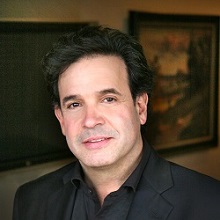Vice-Chair, Neurology Department, Massachusetts General Hospital
Director, Genetics and Aging Research Unit, Massachusetts General Hospital
My research is primarily aimed at a better understanding the etiology and pathology of Alzheimer’s disease (AD) by identifying risk-associated gene mutations/rare variants and using that information to delineate the molecular, cellular, and biochemical events leading to neurodegeneration and neuroinflammation in the brains of AD patients. A significant portion of AD is caused by the inheritance of defective genes; specific gene mutations increase or decrease lifetime risk for AD. To date, four different genes have been implicated to play a role in familial Alzheimer’s disease (FAD). My lab has been involved with the discovery of three of these genes, including the amyloid beta protein precursor [APP], presenilin 1 [PSEN1], and presenilin 2 [PSEN2], which harbor mutations that cause a rare “early-onset” form of the disease with virtually 100% certainty, usually under 60 years old. We have also devised human stem cell-derived mini-brain organoid models to determine the pathogenic mechanisms by which defects or variants carried by AD genes contribute to the neurodegenerative process. We are using these models for drug discovery efforts, with some already in or heading into clinical trials. I also direct the Alzheimer’s Genome Project, which has led to one of the world’s largest interactive databases of AD genetic and next-generation sequencing data. An in-depth understanding AD-associated gene mutations and rare variants lead to beta-amyloid deposition, neurodegeneration, neuroinflammation, and, ultimately, dementia will be invaluable for the development of novel treatments for AD.

